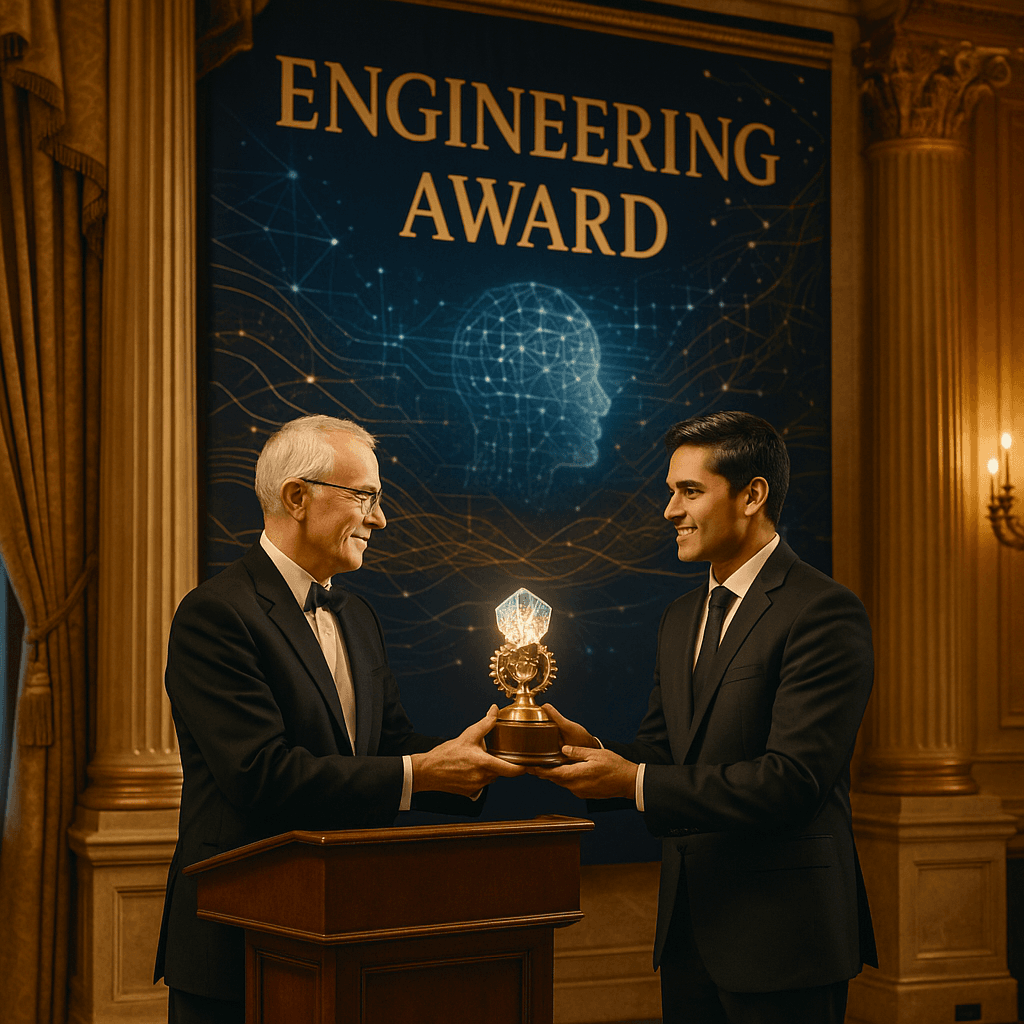Nvidia CEO Jensen Huang and chief scientist Bill Dally just received the highest engineering honor in the U.K. - the Queen Elizabeth Prize for Engineering. King Charles III presented the award at St James's Palace, recognizing their pioneering work in accelerated computing that sparked today's AI revolution. The recognition comes as Nvidia continues its dominance in powering everything from ChatGPT to autonomous vehicles.
Nvidia just cemented its place in computing history. CEO Jensen Huang and chief scientist Bill Dally walked away from St James's Palace this week with the Queen Elizabeth Prize for Engineering - the most prestigious engineering award in the Commonwealth. King Charles III personally presented the honor, recognizing the duo's foundational work in accelerated computing that unleashed today's AI revolution. The timing couldn't be more symbolic. As Nvidia's stock soars past $3 trillion and every tech giant scrambles for GPU access, the royal seal of approval validates what the market already knows - Nvidia built the engine powering the AI age. "To be recognized among the pioneers whose work has shaped the world we live in today is an extraordinary honor," Huang told the assembled dignitaries, according to Nvidia's official announcement. The award specifically honors their "contributions to modern machine learning" - a understated way of describing how they fundamentally rewired computing. While Intel dominated CPUs for decades, Huang and Dally bet everything on parallel processing through graphics chips. That gamble transformed Nvidia from a gaming company into the infrastructure backbone of artificial intelligence. Dally, often called the architect behind Nvidia's AI chips, credited "decades of progress in parallel computing and stream processing" for today's breakthroughs. "We continue to apply engineering methods to refine AI hardware and software so that AI can empower people to achieve even greater things," he said during the ceremony. The recognition extends beyond just corporate success. Their GPU architectures now power everything from OpenAI's ChatGPT to Tesla's self-driving systems, from drug discovery at pharmaceutical giants to climate modeling at research institutions. The pair essentially created the computing platform that makes training massive AI models possible. But the royal treatment didn't stop there. Earlier that day, Huang and Dally sat down with U.K. officials at 10 Downing Street, including Secretary of State for Science Liz Kendall. The discussion focused on inspiring the next generation of engineers - a conversation that reveals how governments worldwide view AI infrastructure as critical national assets. The meeting coincided with National Engineering Day in the U.K., emphasizing how engineering talent has become as strategically important as oil reserves or military capabilities. Countries are racing to build domestic AI capacity, and to that kingdom. Huang's day of honors concluded with an even more personal recognition. At Cambridge Union - the world's oldest debating society - Lucy Hawking presented him with the Professor Stephen Hawking Fellowship. The award honors individuals who advance public understanding of science and technology. "Professor Hawking's life showed that intellect has no boundaries," Huang reflected, according to the . "That curiosity - pursued with humor and grace - can expand the reach of humanity. He taught us that discovery is an act of optimism." The dual honors capture Nvidia's unique position in 2024. The company isn't just riding an AI wave - it created the surfboard everyone else is desperately trying to stand on. From Azure cloud to Gemini models, virtually every major AI advancement runs on Nvidia silicon. This royal recognition also highlights a broader shift in how we view computing pioneers. Past generations celebrated the inventors of the transistor, the microprocessor, the internet. Now we're honoring the architects of the AI age - the engineers who figured out how to make machines learn. The Queen Elizabeth Prize puts Huang and Dally among past winners like Tim Berners-Lee (World Wide Web) and the team behind GPS satellites. It's a reminder that while AI feels futuristic and mysterious, it's built on decades of rigorous engineering work. As Huang noted during his remarks, "We are living through the most profound transformation in computing since the invention of the microprocessor. AI has become essential infrastructure - as vital to future progress as electricity and the internet were to previous generations." That infrastructure is increasingly geopolitical. The U.S. has restricted AI chip exports to China, in domestic capabilities, and countries worldwide are treating AI access like a national security issue. In this context, honoring the duo who built that infrastructure sends a clear message about whose technology the West considers foundational to its future.












